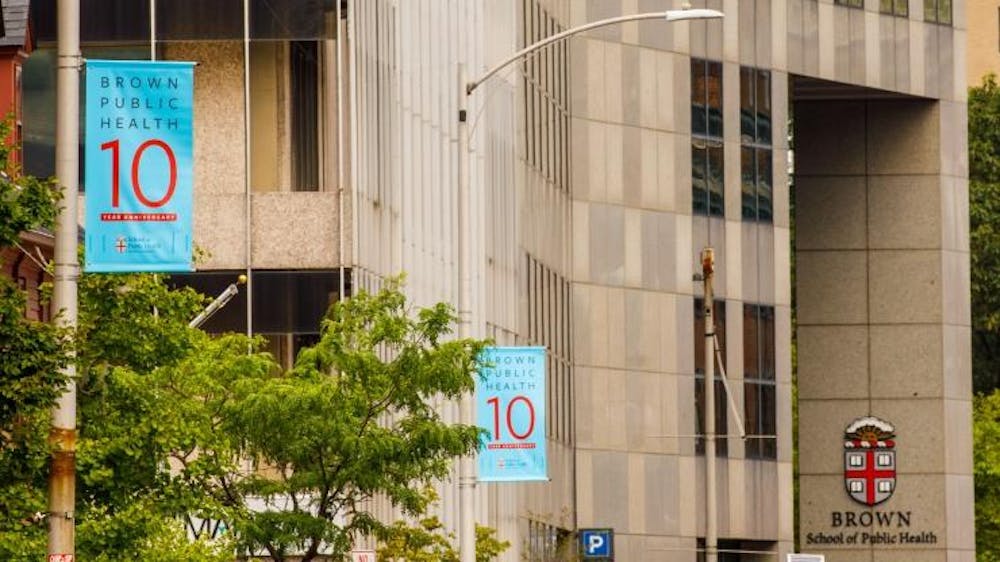The School of Public Health recognized the research of faculty and students at its Public Health Research Day on Tuesday, April 2 in Alumnae Hall.
The event coincides with the 10th anniversary of the School of Public Health and National Public Health Week. This year’s National Public Health Week theme was “Protecting, Connecting and Thriving: We Are All Public Health.” The posters created by students and faculty of all levels for the event explored a variety of public health research being conducted at Brown.
In addition to sharing their research, presenters competed for a series of awards which will be awarded April 25.
The Herald spoke with faculty and student presenters about their research presentations.
William Goedel, an assistant professor of epidemiology, was a poster judge for the event. Goedel spoke with 11 students, primarily master’s students, about their work and research.
“For most of our students, this is the culmination of (around) a year’s worth of work, so there’s just a real palpable excitement for things that people have really dove deeply into and that they’re passionate about,” Goedel said.
Leah Shaw GS, a first-year doctoral student in the Department of Epidemiology, and Claudia Lopez GS, a first-year Master of Public Health student, discussed their research findings.
The two have worked on a research project related to improving PrEP access since 2020.
PrEP is a medication used to prevent HIV transmission which can either be administered orally or via a shot. Their research focuses on PrEP uptake and continuation among people who inject drugs and who are homeless in Boston, a community that has experienced increased HIV transmission since 2018.
“Fifty-five percent of people who are connected to our program were able to pick up more than one PrEP prescription, which is impressive since over 92% of our patient population are homeless at the time of intake,” Shaw said, describing their research. The team works with the Boston Health Care for the Homeless program to find ways to improve access to PrEP.
Kyler Groner GS, a master’s student in the Department of Epidemiology has studied the neighborhood-level association between eviction and emergency room visits.
“There’s a significant and positive relationship between eviction and drug-related visits to emergency rooms,” Groner said. People who are evicted “also tend to experience higher levels of visits to emergency rooms for mental health challenges, as well as general acute care needs.”
Groner stated there was a positive correlation between neighborhood-level eviction rates and emergency room visits for issues such as respiratory health challenges. Groner believed this could be related to causes like overcrowding and increased exposure to environmental hazards that contribute to poor health.
Jasper Yeh ’24, a public health concentrator and former Herald reporter, presented his project on the state of treatment for opioid use disorder, or OUD, among adolescents and young adults.
Yeh noted that there is very little known about OUD treatments for people between the ages of 16 and 25. “Even though it is a comparatively smaller population, this younger population with OUD is rapidly increasing,” Yeh said.

Amber Marcus-Blank is a sophomore staff writer concentrating in Political Science and Public Health on the pre-law track. She is interested in working in politics and journalism in the future and enjoys playing soccer and making playlists in her free time.





